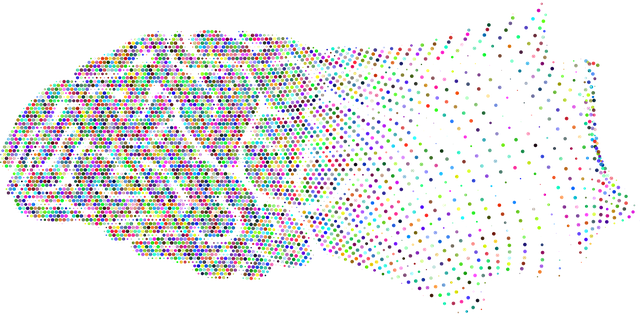Mindfulness meditation, rooted in ancient Buddhist philosophy, is an effective tool for Aurora Oppositional Defiance Disorder (AODD) therapy, offering emotional regulation, impulse control, and coping skills. By focusing on the present moment and accepting feelings without judgment, individuals can reduce AODD symptoms, improve relationships, and enhance life satisfaction. Mindfulness techniques also aid in stress management and burnout prevention, fostering resilience and self-compassion. Starting with a dedicated, distraction-free space and consistent practice of 5–10 minutes daily, incorporating mindfulness into routines like eating and movement practices can significantly enhance well-being for individuals with AODD.
“Unwind your mind and embrace a transformative journey with mindfulness meditation, a powerful tool in Aurora Oppositional Defiance Disorder (AODD) therapy. This practice guides individuals to navigate their thoughts and emotions effectively. Our article delves into the foundational knowledge of mindfulness, offering practical steps for beginners to integrate this ancient technique into daily routines. Discover how mindfulness can enhance well-being, reduce symptoms of AODD, and foster a sense of calm, all while exploring simple strategies to incorporate this practice seamlessly into your life.”
- Understanding Mindfulness and Its Benefits for AODD
- Practical Steps to Begin Your Mindfulness Meditation Journey
- Incorporating Mindfulness into Daily Life for Enhanced Well-being
Understanding Mindfulness and Its Benefits for AODD

Mindfulness, a practice that has its roots in ancient Buddhist philosophy, refers to the act of focusing one’s awareness on the present moment while calmly acknowledging and accepting feelings, thoughts, and bodily sensations. It involves observing your mind’s content without judgment, fostering a deeper connection with yourself and enhancing your overall well-being.
For individuals grappling with Aurora Oppositional Defiance Disorder (AODD), mindfulness meditation can be a powerful tool in their therapy arsenal. AODD is characterized by recurrent arguments with authority figures, persistent contempt for rules, and defiance or anger. Mindfulness practices have been shown to reduce symptoms of AODD by promoting better emotional regulation, improving impulse control, and enhancing coping skills. By learning to observe and accept their emotions without reacting impulsively, individuals with AODD can gain a sense of mastery over their behaviors, leading to improved relationships and increased life satisfaction. Moreover, mindfulness techniques are valuable in burnout prevention for those managing stress within the context of AODD therapy, enabling them to navigate challenging situations with greater resilience and self-compassion.
Practical Steps to Begin Your Mindfulness Meditation Journey

Embarking on a mindfulness meditation journey can seem daunting, but with practical steps and consistent effort, it becomes an accessible and powerful tool for enhancing mental well-being. Start by dedicating a quiet space in your home as your meditation sanctuary, free from distractions. Set a realistic daily practice, even if it’s just 5–10 minutes, and stick to it. Begin each session with a simple breathing exercise: focus on inhaling deeply through your nose, holding for a moment, then exhaling slowly through your mouth. This grounding technique is an essential foundation for mindfulness.
Consider incorporating mindfulness into other aspects of your daily routine for a holistic approach to self-care. For instance, practice mindful eating by savouring each bite and engaging all your senses during meals. Similarly, integrate movement practices like yoga or tai chi, which combine physical exercise with breath awareness, enhancing both resilience building and coping skills development. Remember, the goal is not to achieve perfection but to cultivate a consistent practice that supports your journey towards better mental health, especially if you’re navigating conditions such as Aurora Oppositional Defiance Disorder (AODD).
Incorporating Mindfulness into Daily Life for Enhanced Well-being

Incorporating mindfulness into daily life can significantly enhance overall well-being. This ancient practice, rooted in traditional meditation techniques, offers a modern solution for managing stress and promoting mental clarity. By dedicating just a few minutes each day to mindfulness exercises, individuals can cultivate a sense of calm and presence that extends beyond the meditation cushion. For those navigating challenges like Aurora Oppositional Defiance Disorder (AODD), mindfulness therapy becomes a powerful tool. It helps individuals develop emotional healing processes, offering anxiety relief and improving their ability to manage symptoms effectively.
Beyond its benefits for AODD therapy, community outreach program implementations have recognized the transformative power of mindfulness. These programs often incorporate mindfulness practices into group settings, fostering connections and supporting collective emotional well-being. By integrating mindfulness into daily routines, whether through mindful breathing exercises or body scans, individuals can improve their overall mental health and resilience, contributing to a more balanced and fulfilling life.
Mindfulness meditation has proven to be a powerful tool in managing Aurora Oppositional Defiance Disorder (AODD), offering a calming approach to enhance focus, reduce impulsivity, and improve overall well-being. By incorporating practical steps and integrating mindfulness into daily routines, individuals with AODD can navigate their symptoms more effectively. This journey begins with understanding the benefits of mindfulness, taking the first step through structured practices, and eventually cultivating a mindful lifestyle that fosters resilience and personal growth.














